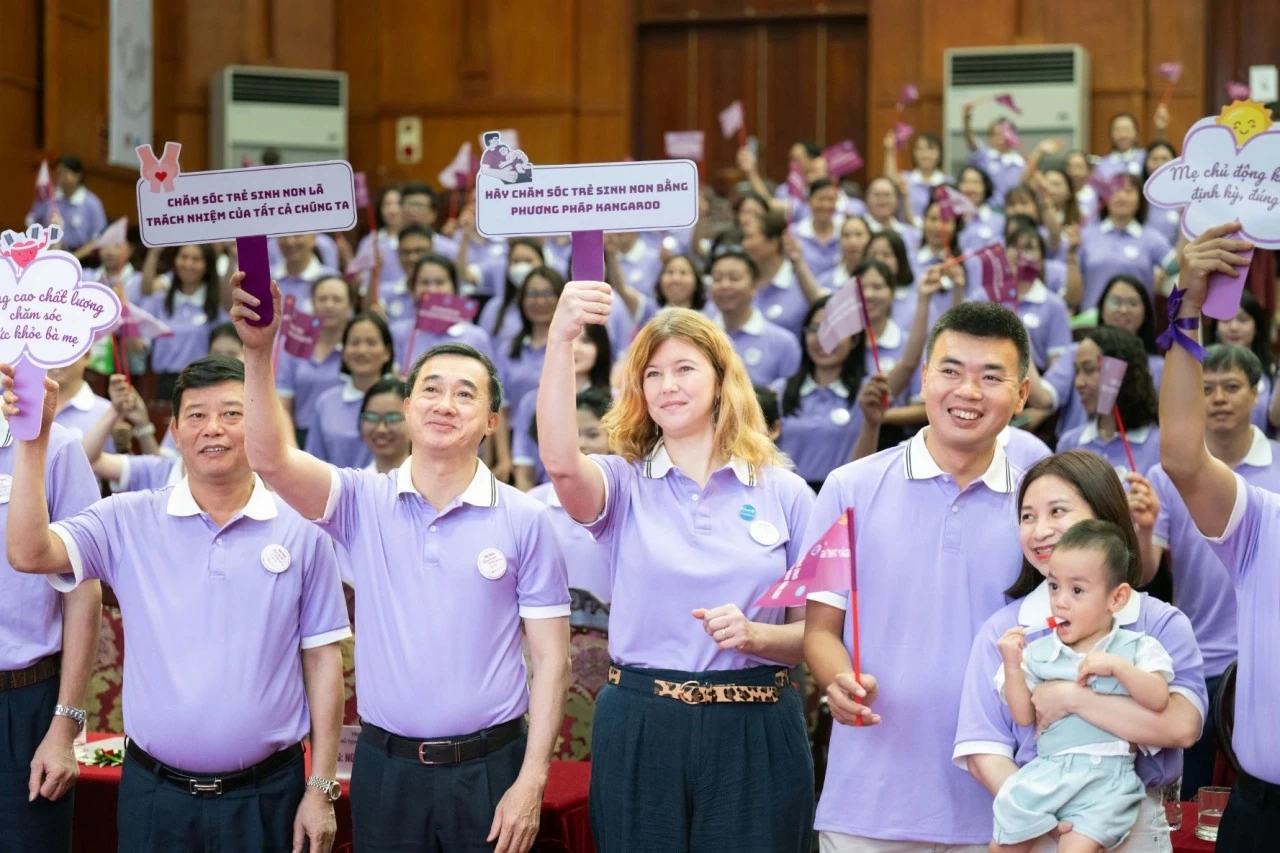
World Prematurity Day 2024: UNICEF promotes access to quality care everywhere
Latest
This year's theme, "Over 13 million babies born prematurely every year. Access to quality care everywhere!" highlights the stark global disparities in healthcare and calls for universal access to high-quality care for preterm babies, regardless of their birth circumstances or location.
 |
| Delegates at the special event to celebrate World Prematurity Day in Bac Ninh province on November 16, 2024. (Photo: UNICEF) |
Preterm birth remains the leading cause of death for children under five, and many who survive face lifelong disabilities due to inadequate healthcare. It is estimated that 13.4 million babies born prematurely worldwide every year. In Viet Nam, premature deaths account for approximately 45 percent of all child mortality cases. The theme of World Prematurity Day 2024 is a call for urgent action to close the healthcare gap, advocating for better maternal and neonatal care worldwide.
In collaboration with our partners, UNICEF Viet Nam is spearheading this effort by engaging families, healthcare professionals, and policymakers in a global dialogue on improving outcomes for preterm babies. On 16 November, with the support of Kimberly-Clark, UNICEF, the Ministry of Health and Bac Ninh province hosted a special event in Bac Ninh province, to promote access to quality care for newborns, particularly to low-birth weight and preterm babies.
 |
| UNICEF Representative to Vietnam Silvia Danailov speaks at the event. (Photo: UNICEF) |
“Today, on World Prematurity Day, we are reminded of the need to minimize disparities in healthcare access. Preterm infants face significant challenges, making it imperative to have timely and equitable access to quality care, as this can significantly improve their survival chances, long-term health, and well-being. As we celebrate the resilience of these infants and their families, we also pay tribute to those lost to preventable complications, underscoring the urgency of our work” said Silvia Danailov, UNICEF Representative to Vietnam.
 |
| Vice Minister of Health Tran Van Thuan speaks at the event. (Photo: UNICEF) |
In his call to action, Vice Minister of Health Tran Van Thuan had stated that reducing premature and low birth weight births, and consequently lowering infant mortality, required a unified approach. He had indicated that this didn't just involve the efforts of the health sector, but also necessitated collaboration from various Ministries, local authorities, and the community at large.
Additionally, he had highlighted the critical role of expectant mothers' awareness, along with the support of international and domestic organizations. He had emphasized that their focus should be on implementing solutions for improved prenatal care, preventing premature births, and ensuring comprehensive treatment for premature babies.
| World Prematurity Day (November 17) was established by the European Foundation for the Care of Newborn Infants (EFCNI) and its partner organisations in 2008 to bring attention to the global crisis of preterm birth. The day now unites a worldwide network of individuals and organisations working to prevent preterm birth and improve care for babies born too soon. |













